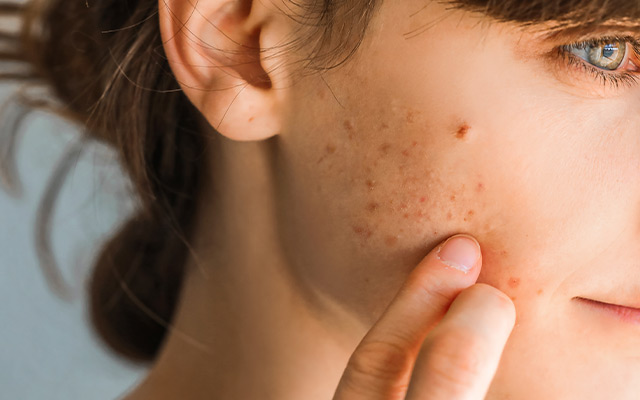EADV Congress 2024
Session type: Updates
Room: Auditorium
Date: Saturday, 28 Sep, 08:50 – 09:10 CEST
Part of Session: Acne


Prof. Brigitte Dréno
(Nantes, France)
Acne in adult females is mainly triggered by hormones. Doxycycline is considered a reference treatment in acne. Spironolactone at low doses is an anti-androgen which targets the androgen receptor of sebaceous glands. It is prescribed off-label for female adult acne for more than 40 years in some countries as the USA. However, until now, the “evidence-based medicine” proofs of the clinical efficacy of spironolactone in acne remain low, which explains why it is not included in the official acne recommendations.
In this context, a multicenter, controlled, randomized, double-blind prospective and parallel study assessed the efficacy of spironolactone compared with doxycycline in adult female acne. A total of 133 women with moderate acne were randomized to receive treatment with either doxycycline and benzoyl peroxide for 3 months followed by a 3-month treatment with its placebo and benzoyl peroxide, or spironolactone and benzoyl peroxide for 6 months. Successfully treated patients continued with benzoyl peroxide or spironolactone alone for a further 6 months. Primary endpoints were treatment success at month 4 and month 6 with the AFAST score (Adult Female Acne Scoring Tool: JEADV 2016; 30: 824–828), an easy-to-use tool for scoring acne in adult females.
This trial demonstrated that Spironolactone performed better at month 4 and showed a statistically significant better treatment success after 6 months than doxycycline (p = 0.007). Spironolactone was 1.37-times and 2.87-times more successful compared with doxycycline at respective 4 and 6 months. In addition, patients’ quality of life was better with spironolactone at month 4 and month 6. This is the first study to show that, in female adults with moderate acne, treatment with spironolactone is significantly more successful than doxycycline and very well tolerated.





